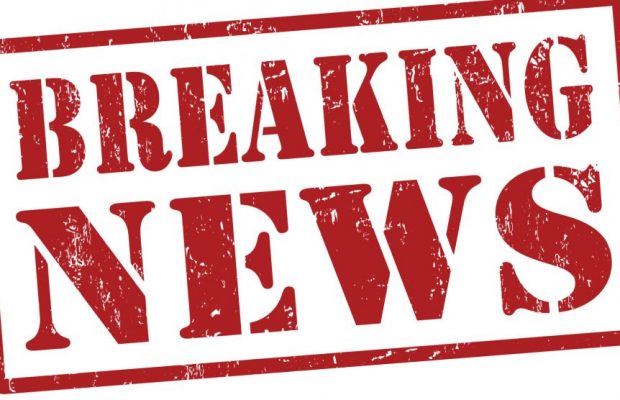Five ways to reduce Stroke risk this World Stroke Day

Although #WorldStokeDay has occurred, this info is critically important for everyone, especially communities of color. Take heed and ensure to #STAYWOKE & #STAYHEALTHY!
Strokes can happen to anyone, at any age. And they don’t stop because of a pandemic. About one in four people worldwide have a stroke — the world’s No. 2 killer and a leading cause of disability. But up to 80% may be prevented.
That’s why the American stroke Association, a division of the American Heart
Association, is commemorating World Stroke Day on Oct. 29th by emphasizing the importance of preventing stroke. Much of what puts you at risk for a stroke (uncontrolled high blood pressure, smoking or obesity) increases your risk for complications due to COVID-19.
The association’s World Stroke Day efforts will include a focus on controlling high blood pressure, because it’s the leading preventable cause of stroke. About half of U.S. adults have high blood pressure, and only 25% have it under control.
Check your blood pressure regularly
“Checking your blood pressure regularly and getting it to a healthy range is one of the most important things you can do to reduce your risk of stroke,” said Mitchell S. V. Elkind, M.D., M.S., FAHA, FAAN, president of the American Heart Association and professor of neurology and epidemiology at Columbia University in New York City.
Control high blood pressure
These tips can help keep your blood pressure in a healthy range (120/80) — and lower your stroke risk:
- Join the team. Work with your doctor and other health care professionals to manage your blood pressure through lifestyle changes and/or medication.
- Take medications as prescribed. If you have been prescribed blood pressure medications, take them as prescribed. Check the labels on over the counter cold or flu medications, as some may elevate your blood pressure. If you have high blood pressure, NSAIDs may cause elevated blood pressure, consider acetaminophen instead.
- Eat colorful fruits and veggies. A heart-healthy diet may help lower blood pressure over time. • Rest up. Getting seven to nine hours of quality sleep each night can improve brain function. Sleep-related breathing issues may increase stroke risk, so seek treatment right away if you suspect sleep apnea or a similar problem.
- Meditate. Practicing mindfulness and being aware of your breathing may significantly reduce blood pressure.
- Be active. Adults should get at least 150 minutes per week of moderate activity or 75 minutes of vigorous activity (or a combination). Two days per week of moderate- to high-intensity muscle strengthening activity is also recommended.
Be an Empowered to Serve™ changemaker
Reducing stroke risk isn’t always just a matter of changing daily habits.
“Structural racism and other forms of discrimination make it more difficult for Black, Latinx, Indigenous, LGBT and other marginalized people to access the tools they need to fully control their risk factors for stroke,” Elkind said.
There is growing evidence that historically marginalized groups in the U.S. live with increased stress and reduced access to health care, socioeconomic and psychological factors. As a result, up to 40% of Black adults in the U.S. have high blood pressure and Black people who have a stroke are more than twice as likely to die from it than white people.
“At the American Stroke Association and American Heart Association, we’re working with individuals, organizations, businesses and government to address the root causes of these inequities to ensure longer, healthier lives for all. It will take all of us, coming together to make change at individual and structural levels.”
One way anyone can make change is by joining the American Heart Association and American Stroke Association’s EmPowered to Serve effort, which focuses on driving change through health justice and empowerment in individual communities.
Know the most common warning signs
In addition to managing your own risks, Elkind and the ASA advise all people to be ready to save a life by remembering the most common stroke warning signs using the acronym FAST – F for face drooping, A for arm weakness, S for speech difficulty and T for time to call 911.
“Getting emergency medical treatment for a stroke is safe, even during the pandemic,” Elkind said. “Calling 911 helps treatment start even before you reach the hospital, improving chances for a better recovery.”
Ride for research
You can also recognize World Stroke Day by riding your bikes in
the association’s digital event, One CycleNation on Oct. 29. You’ll help stop the cycle of stroke and heart disease by raising funds to support community programs that allow people to live longer and healthier. Fundraising and distance achievements will be recognized.
The livestream event will also feature stroke survivors, including Olympic gold medalist Michael Johnson and This is Us and Psych actor Timothy Omundson.
For more information on how to get involved, visit Stroke.org/WorldStrokeDay.
About the American Stroke Association
The American Stroke Association is a relentless force for a world with fewer strokes and longer, healthier lives. We team with millions of volunteers and donors to ensure equitable health and stroke care in all communities. We work to prevent, treat and beat stroke by funding innovative research, fighting for the public’s health, and providing lifesaving resources. The Dallas-based association was created in 1998 as a division of the American Heart Association. To learn more or to get involved, call 1-888-4STROKE or visit stroke.org.












